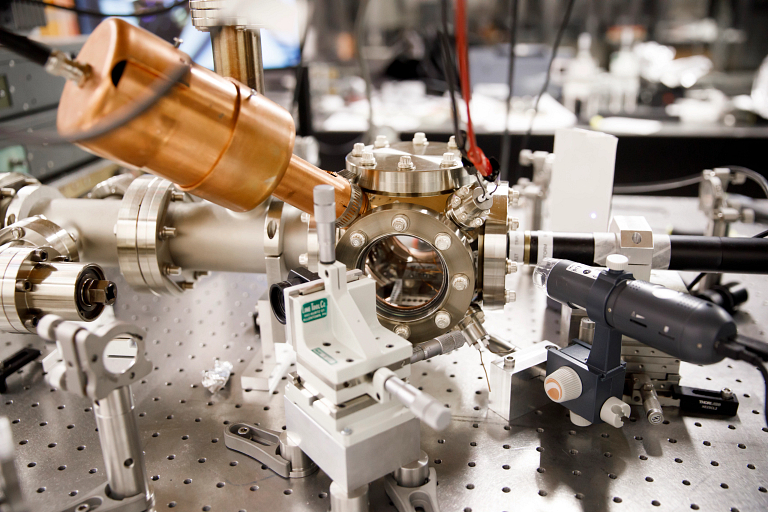Scientists at Indiana University Bloomington and IUPUI are partnering with two other institutes of higher education in Indiana to establish a quantum research center in the state.
The new Center for Quantum Technologies, led by Purdue University, will be established through the National Science Foundation's Industry-University Cooperative Research program. Industry partners would provide research funding to the center's scientists and gain early access to findings applicable to their businesses. The other university in the partnership is the University of Notre Dame.

The partnership is expected to bring dozens of scientists from the Indiana university partners -- as well as industry -- together to tackle applied research in the field. These technologies have the potential to impact energy efficiency, computational speeds, banking and national security, defense, and health care innovation.
"The Center for Quantum Technologies will be a tremendous complement to our on-going activities in the IU Quantum Science and Engineering Center," said David Baxter, professor and chair of the IU Bloomington College of Arts and Sciences' Department of Physics. "It will help us establish direct connections to the industrial concerns that will be making use of quantum technologies in the coming decades, greatly expanding opportunities for our students and helping us identify new areas of research."
Faculty experts in machine learning, quantum algorithms and quantum simulation from IU Bloomington are expected to play a significant role in the new center. The Fibers and Additive Manufacturing Enabled Systems Laboratory, part of the Department of Intelligent Systems Engineering in the IU Luddy School of Informatics, Computing and Engineering, will also contribute to the project.
At IUPUI, over 20 faculty members and their research teams from the School of Science and School of Engineering and Technology will contribute to the center. These groups will provide their internationally recognized expertise in quantum sensing, quantum materials and interactions, and quantum vacuum to the consortium, as well as work toward the development of a new quantum-focused education program.
"The formation of the Center for Quantum Technologies gives a unique platform to continue to strengthen the partnership between IUPUI and industry, expanding this ongoing relationship into the realm of quantum science and technology," said Ricardo Decca, professor and chair of the Department of Physics in the School of Science at IUPUI. "With the rapid transformation of quantum computation, quantum sensing and quantum communication from the academic world into the commercial environment, IUPUI research groups will help strengthen the participation of central Indiana into the National Quantum Initiative."
Program leaders also note that one of the main objectives of the new center is to build a highly skilled workforce, which is critical for the currently shorthanded quantum industry. All these activities --developing novel quantum technologies, promoting interdisciplinary research, establishing strong industry and government partnerships, and training a quantum-smart workforce -- will also lead to increased U.S. economic competitiveness.
"This collaboration will allow us to leverage our collective research expertise to address the challenges facing industries using quantum technology," said Sabre Kais, director of the planned center and a professor of chemical physics at Purdue. "As a university with world-leading engineering and science programs, and faculty members whose work focuses on many areas of quantum research, Purdue is a natural leader for this type of center."
Additionally, students engaged with the new center will take on many of the responsibilities of a principal investigator, including drafting proposals, presenting research updates to industry members, and planning meetings and workshops.
The NSF-approved funding will allow project leaders to spend the next year organizing researchers across the center's universities, as well as recruit industry partners.






